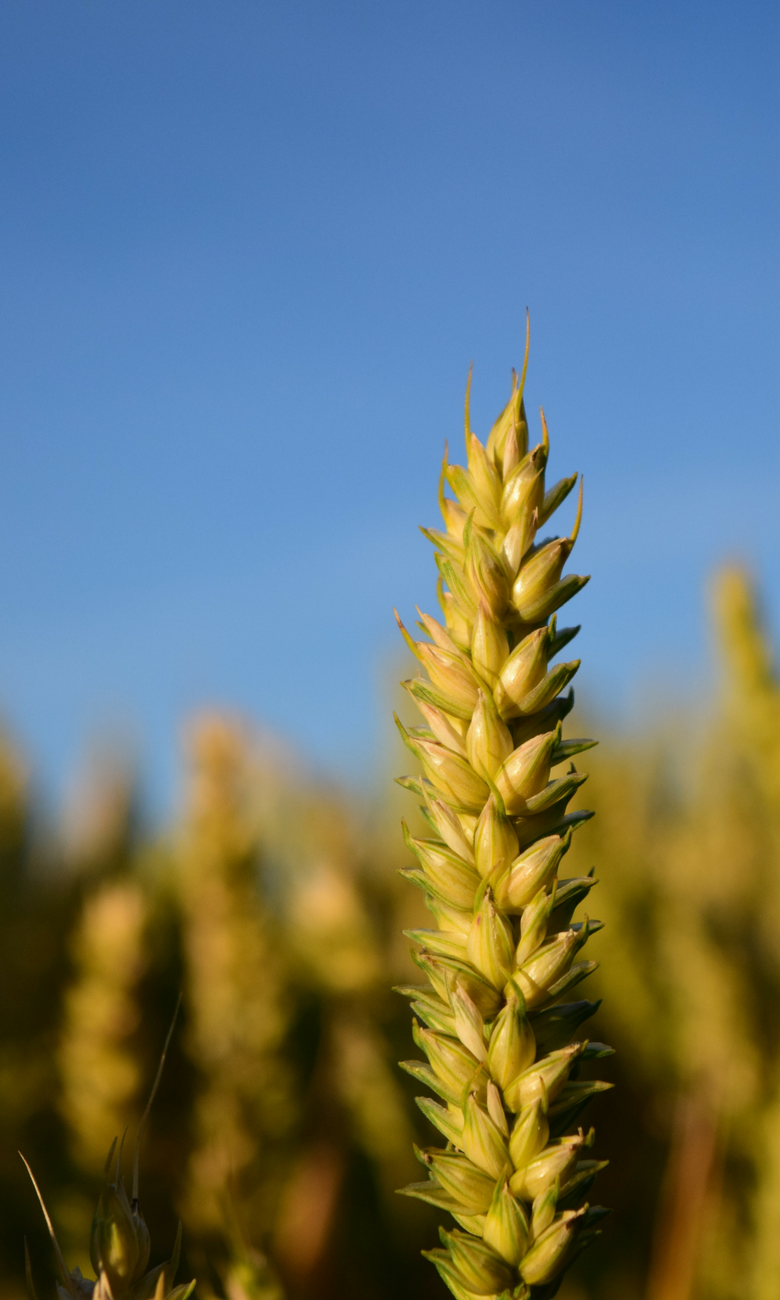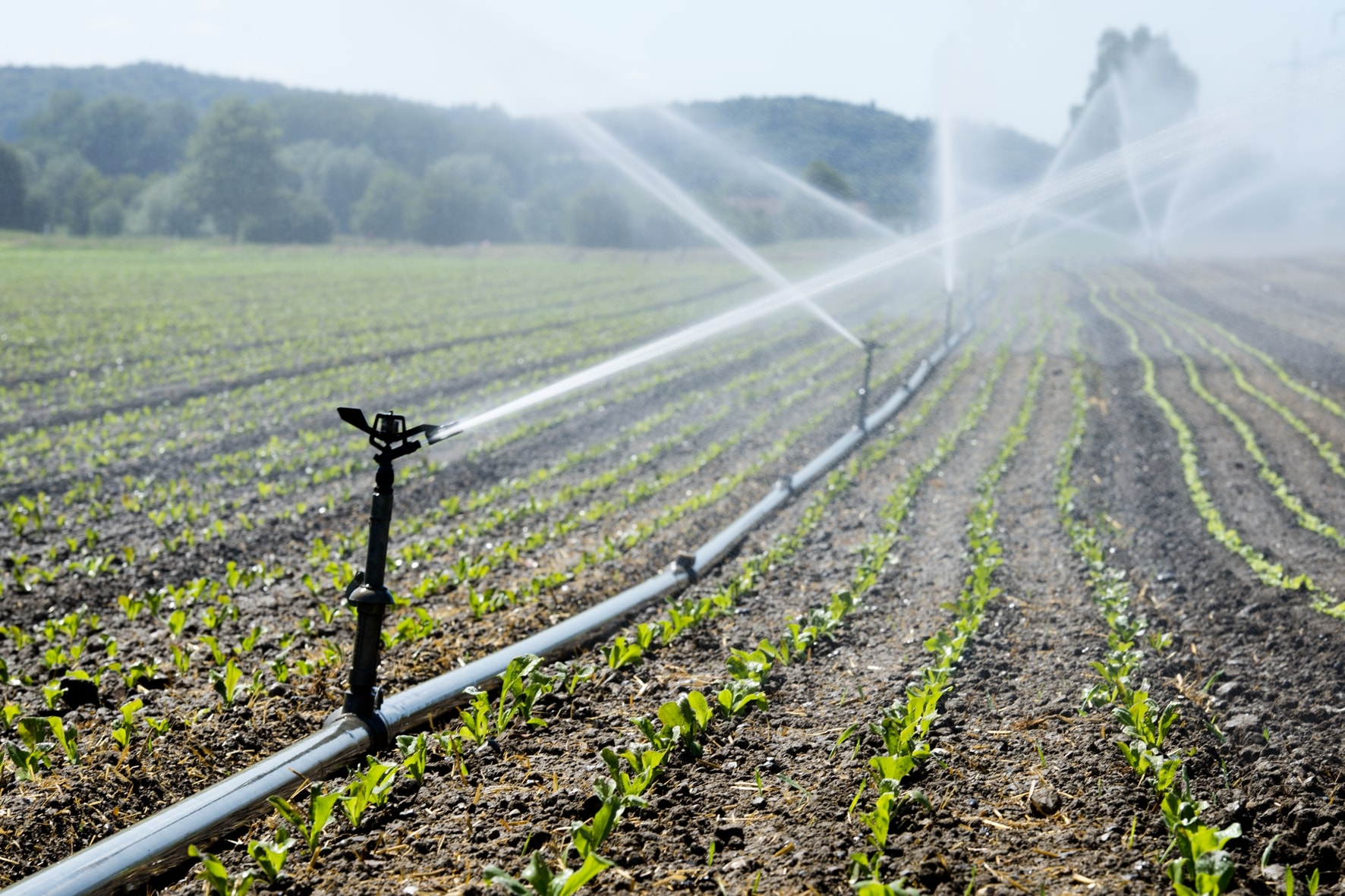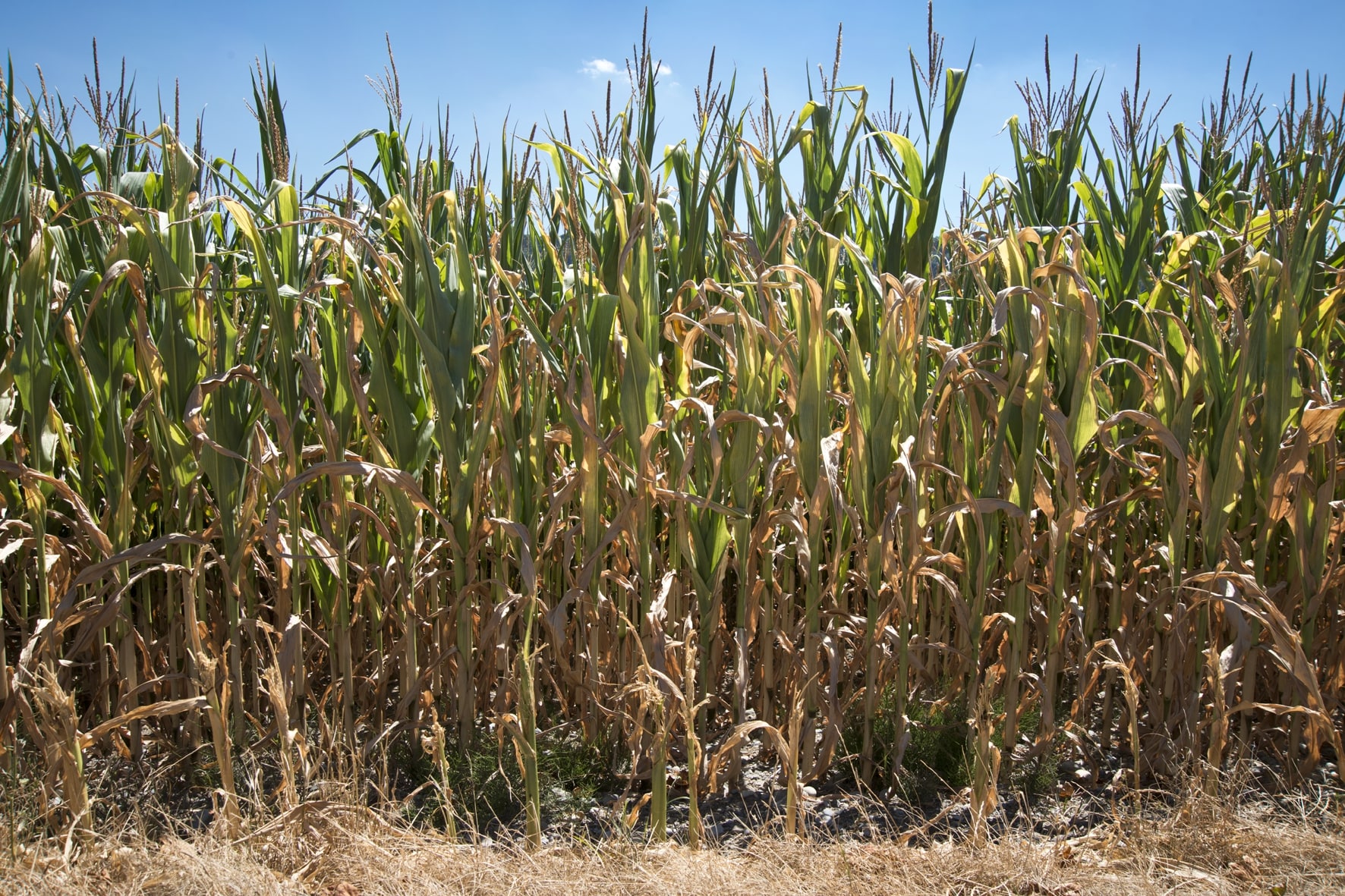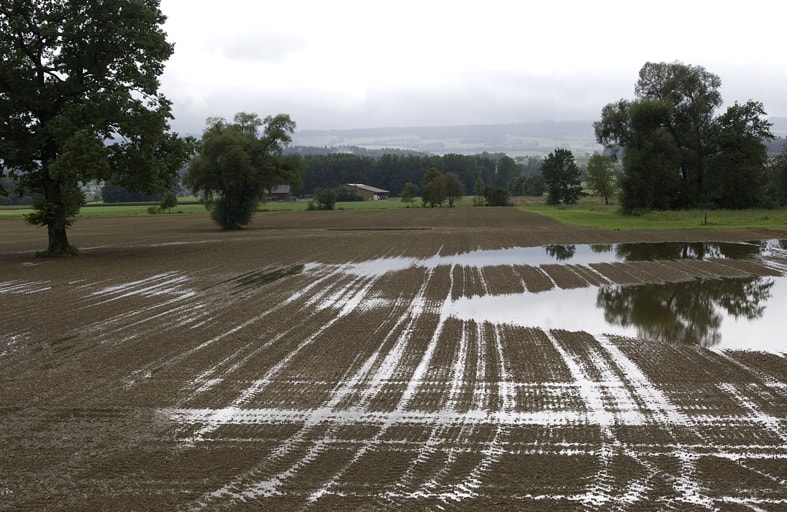Climate change: A challenge for Swiss agronomic research
Confronted with a changing climate, Swiss agronomic research is working to ensure food security.
The future impact and scale of global warming are still difficult to assess because they are to a large part the result of emissions of greenhouse gases. Although the majority of world political leaders agree on the acute urgency of the need to reduce emissions, it is still difficult to ensure the results of the commitments made or that they will continue to be honoured. Agriculture plays a key role in this context as it is both victim and actor in climate change. This is a challenge for Swiss agronomic research.
With the Paris Agreement of 12 December 2015, the international community committed to massively reducing greenhouse gas emissions. The aim: to maintain global warming to below 2°C. Agriculture is doubly concerned: on the one hand, climatic changes are threatening food security, while on the other, agriculture is producing a significant quantity of greenhouse gases. In Switzerland, Agroscope, the federal government’s agricultural research agency, is working on both these fronts. Researchers are working to preserve the quantity and quality of food produced by Swiss farming while developing solutions to lessen its environmental impact. But how do researchers work on a phenomenon so difficult to anticipate as climate change?

Providing concrete solutions in the face of an unstable future: the scenarios
Pierluigi Calanca, a scientist working in the Climate & Agriculture research group, answers: "It is first of all necessary to take into account the hypotheses on the development of society in 30, 40 and 100 years' time. To do this, we work with what we call '‘paths'’, that is the various channels through which CO2 will accumulate in the coming years." The most favourable scenario: the Paris Agreement is adhered to. The worst: the world continues to produce at least as much CO2 as it is doing now.
On the basis of these different scenarios, or paths, climatologists can calculate future changes in the global climate with the aid of models and then extrapolate results for a particular region. Agroscope scientists are working with these regional scenarios to try to determine the impact of climate change on agriculture. This, however, involves cooperation. "We develop a basis of information that other researchers can use to carry out their more specific and targeted research. Our role is to try to anticipate not only the impact of a rise in temperature on a region, but also the variations in precipitation and what this entails," the climatologist explains.

© Gabriela Brändle, Agroscope
Essential international and national collaboration
International cooperation is a global challenge. An example: within the framework of a project being carried out by ERA-NET, a European networking instrument for researchers, Agroscope is collaborating with Germany and Russia. The team assesses the risks for grain production in Russia of heat waves and strong variations in rainfall. It is a key project for food security worldwide: "Russia is one of the largest exporters of wheat, but the heat wave in 2010 devastated its crops. A drop in production of more than 30% resulted in a significantly higher price for wheat on the world market," Calanca explainsed. It was a disaster for a staple foodstuff. "Thanks to this project, it will be possible to determine areas that are most threatened by extreme events and to find solutions to minimise the scale of future shortages and market imbalances."
And in Switzerland, how are we preparing for the impact of climate change?
Vineyards under close observation
Close cooperation already exists in particular with the Viticulture research group, which is confronted by a double challenge. The typicity and quality of wines largely depend on temperatures and humidity, and vines have a life of 30 to 40 years.
Vivian Zufferey, a scientist working in the Viticulture group, explains their method: "It is important to understand that climate change is not something that is starting today. Temperatures, sunshine and rainfall vary enormously from one year to the next. For many years, we have been studying very closely the impact of climatic conditions on the behaviour of grape varieties and the quality of wines. These observations are very valuable because they can lead to paths and technical proposals for the future."

© Gabriela Brändle, Agroscope
Not only is the increase in temperature a challenge for researchers, potentially increasing fluctuations in rainfall cycles are also a serious problem. Zufferey goes on to explain: "We test various growing techniques to cope with drought on different grape varieties. For example, the research group is studying the possibilities of sowing grass among vines during drought conditions because grass prevents soil erosion. This project also makes it possible to observe the effects of grassing in the event of competition for water and minerals, especially nitrogen-based elements." Thanks to these studies, it is now becoming possible to promote certain growing techniques and to select land and grape varieties that are best adapted to future climatic conditions, resisting the increasing risks of fungus diseases, and emerging pest problems.
Moreover, by preserving the soil and selecting the most resistant plants, viticulture, like agriculture, produces less CO2. In this way the two objectives converge.
Facilitating access to research results
The key to success in meeting the challenges of climate change is cooperation. "In research, cooperation with international institutes is key. As in the field of medicine, the best way to advance is to share findings," Zufferey says.
Switzerland has a major advantage with the coming opening of the National Centre for Climate Services. The centre is a platform for knowledge exchange and facilitating access to the scenarios and results of research. The aim is to enable the different actors in the fight against climate change to obtain up-to-date information. This is one project in which Pierluigi Calanca is actively participating and which will enable Switzerland to become better prepared for the challenges of the future.

© Gabriela Brändle, Agroscope




